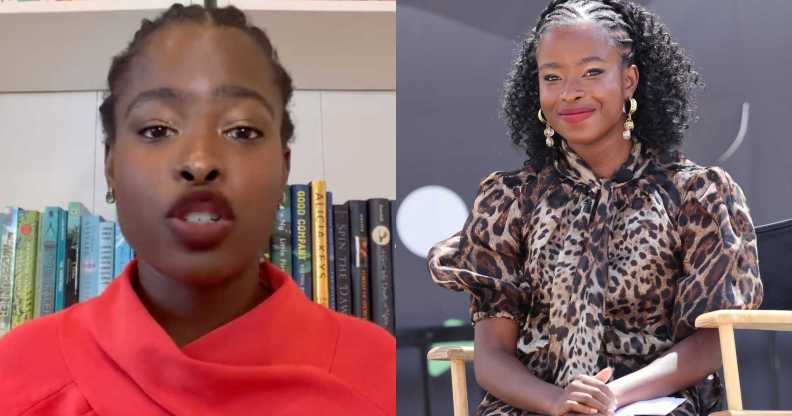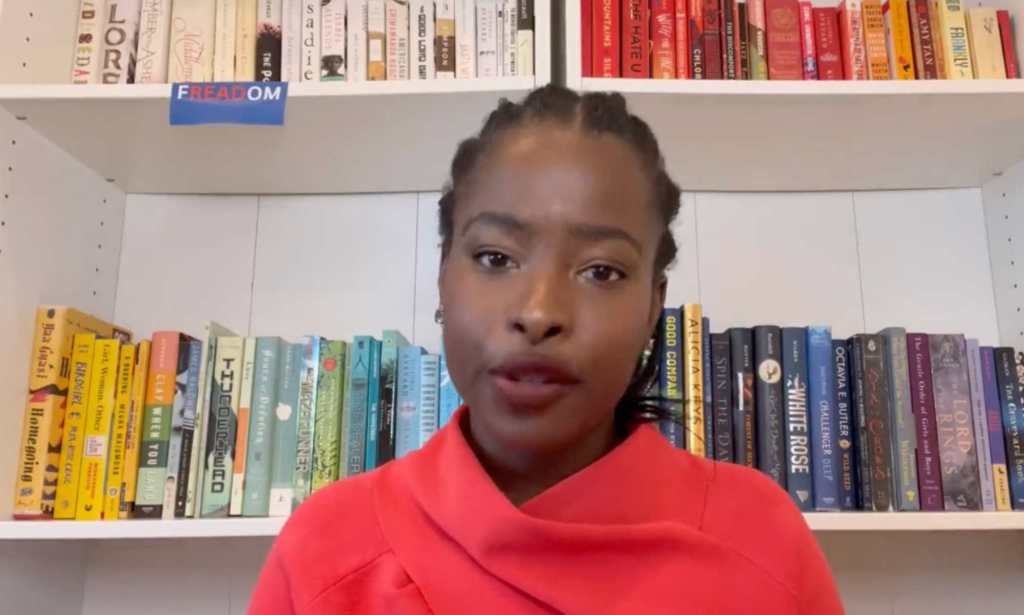Youth Poet Laureate Amanda Gorman blasts Scholastic segregation of books by queer and BIPOC authors

Amanda Gorman has called out Scholastic. (Twitter/Amanda Gorman/ Getty Images)
Amanda Gorman has called out Scholastic. (Twitter/Amanda Gorman/ Getty Images)
Youth Poet Laureate Amanda Gorman has joined a number of authors and writers who have criticised publisher Scholastic for allegedly allowing schools to exclude books that feature race and/or LGBTQ+ issues.
The global children’s book publisher was accused last week of bending to right-wing demands and giving schools that participate in their book fairs the option to remove books written by or about minority groups.
This was reportedly done by grouping potentially “controversial” book titles into one collection, called “Share Every Story, Celebrate Every Voice”. The publisher then allows each individual school to “make the right decisions for them” and decide whether or not the books would be included in their local book fair.

Among the 64 books in the collection are Justice Ketanji, a short biography about Supreme Court Justice Ketanji Brown Jackson; I Colour Myself Different by athlete and activist Colin Kaepernick, and Amanda Gorman’s own children’s book Change Sings.
Reacting to Scholastic’s move, Amanda Gorman, who famously recited one of her poems at President Joe Biden’s inauguration, posted to social media to demand better.
“Stunned that Scholastic Book Fairs is self-censoring the books in its ‘Share Every Story, Celebrate Every Voice,’ which are predominantly by queer, disabled, & Black & brown authors. This is not sharing our stories–it’s treating them as separate but equal,” she tweeted.
Noting that her book had been included in the opt-out collection of Scholastic books, she continued: “It honestly feels like a betrayal. As an elementary student, for weeks I’d save every single penny I had for the Scholastic Book Fair because it felt like a safe place to explore and choose for myself what books I wanted to read, what stories I wanted to find representations of myself in.

“It was in part what made me want to write children’s books in the first place. I never thought that my work would be a #1 NYT best-seller, or that the very place that had inspired me would censor my words.
“Trust me, @Scholastic, I know book bans in schools is messy and intimidating. But we can, and must, do better, for ourselves, for our authors, for readers, for all our stories—both those today and yet to come.”
Reacting to allegations that they had purposefully given schools the option to exclude diverse books from their book fairs this year, Scholastic said in a statement issued last week that they had been put in an “almost impossible dilemma”: to either “back away from these titles or risk making teachers, librarians, and volunteers vulnerable to being fired, sued, or prosecuted.”
That, they argued, was down to the fact that more than 30 US states have either enacted or pending legislation that would allow for certain books to be banned from schools, typically because of their engagement with LGBTQ+ or race issues.
“We don’t pretend this solution is perfect, but the other option would be to not offer these books at all – which is not something we’d consider,” they insisted.
“There is a wide range of diverse titles throughout every book fair, for every age level. And, we continue to offer diverse books throughout our middle school fairs, which remain unchanged.
“All children need to see themselves in stories and it is extremely unsettling to consider a world in which they don’t. Scholastic’s commitment remains unshakeable to publish and distribute stories representative of ALL voices.”
Author Rebecca Burgess has also hit out at Scholastic’s new measure, after learning that her graphic novel Speak Up which includes an LGBTQ+ romance was also added to the collection.
“I’ve been [really] mad and upset about this all day. I was mad about this whole thing anyway, of course!” she tweeted.
But like, most of the *lovely* messages I’ve had from thankful parents and excited kids start with ‘I saw your book at my local book fair’.
“So like, probably most kids are finding this book through Scholastic. These are kids saying in emails how they feel seen/understood for the first time. I was very excited that they’d decided to host my book at the beginning of the year. [Because] it’s like reaching past that niche.
“But now it’s back to being in that niche bracket, you know? Where some schools will decide to just not include it entirely.
My second banned book of the year apparently. I’m so frustrated by all of it, not just this obviously, just, everything. I cry a lot just over everything.”

